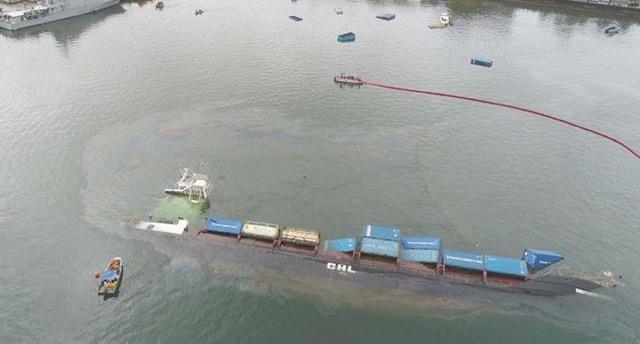Senior managers from Maritime Administrations and legislative draftspersons specialised in maritime and shipping related legislation from 11 Pacific Island countries gathered in Suva this week (26–29 September) for the Regional Workshop on International Maritime Organization Civil Liability Conventions.
The meeting was part of Pacific Community (SPC) Transport Programme’s efforts to support effective technical services to ensure safe and secure transport in the Region in good collaboration with the International Maritime Organization (IMO).
The 30 millions square kilometres of the Pacific Ocean are sailed daily by thousands of commercial and cruise vessels.
This surely represents a potential source of economic benefit but at the same time, in case of shipping incident, a potential great financial risk for ship-owners, cargo owners, crews and passengers.
At the same time, international shipping represents a potential threat to the environment and the lives of those who rely on clean oceans, such as Pacific Islanders.
Among the various threats that this vital source of life is endangered with, there are the maritime casualties involving spillage of oil, hazardous and noxious substances, as well as the adverse impacts of the abandoned wrecks, estimated at almost thirteen hundred worldwide.
Since their establishment in 1978, the International Oil Pollution Compensation Funds (IOPC) have dealt with 150 incidents and have paid some £600 million (£331 million of which was in respect of the 1971 Fund). It is important to note that the shipowner alone meets the great majority of claims (some 95% historically) without any need for recourse to the IOPC Funds.
“IMO’s global regulatory regime is essential for the safe and secure operation of shipping and the preservation of the oceans and atmospheric environment. The workshop had a significant impact on the progress of ratification and full implementation and enforcement of the relevant IMO liability instruments which provide for prompt and adequate compensation in the region,” said Mr Jan de Boer, IMO Senior Legal Officer, Legal Affairs Office, Legal Affairs and External Relations Division.
“Understanding the principles for liability and compensation for damage caused by ships and aligning to an internationally harmonised regulatory system approach, it’s therefore of the utmost importance for every Pacific Island country,” said Mr Thierry Nervale, Deputy Director Transport of SPC, while addressing the participants.
“This week’s workshop was a great opportunity to fully comprehend and understand the IMO Civil Liability Conventions. It also highlighted the need that it should be implemented into our national legislation after ratifying it. Without doubt this regional interactive workshop will not only benefit each Maritime Administration but will foster efficient collaboration within the region for the safe and the environment friendly connection of ships, ports and people,” said Joe Fifita, Legal Officer, Ministry of Infrastructure, Tonga.
The workshop gave participants an overview of the international liability and insurance requirements and schemes and detail responsibilities of the various stakeholders involved (governments, ship-owners, international funds, insurance companies, etc).
Media contacts:
Atishma Lal, SPC Project Information Assistant, [email protected] or +679 3379402
